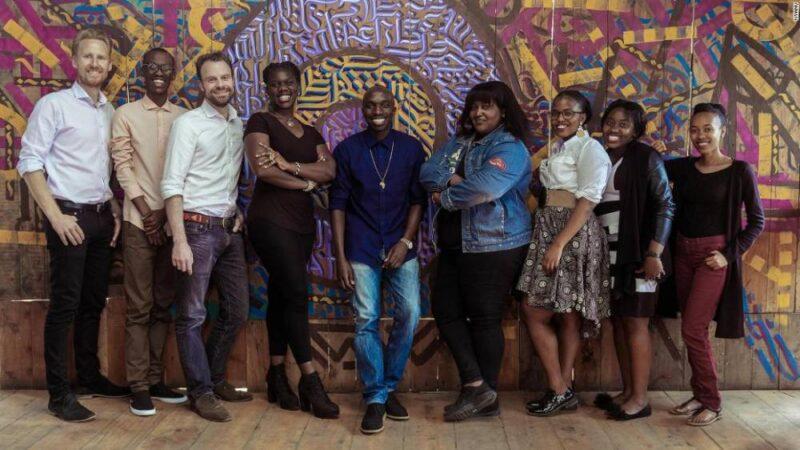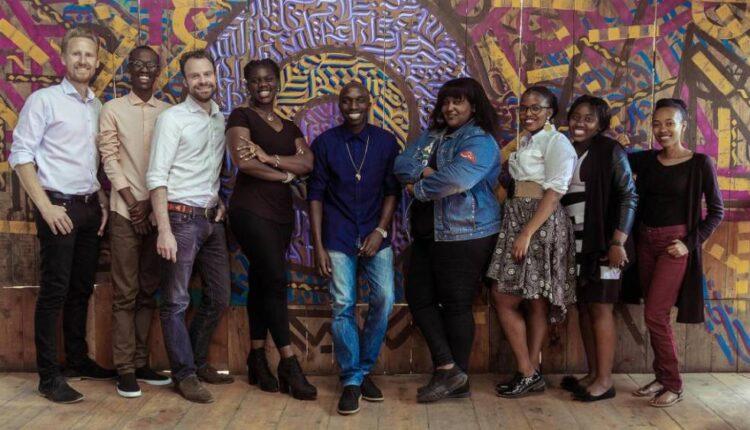London (CNN Business)African music has exploded onto the world stage in recent years, but its streaming platforms lag behind.
Spotify (SPOT) is only available in five African countries and while Apple (AAPL) Music recently expanded into more than 30, paid subscription services aren’t as popular on the continent as illegal downloads. That means African artists are missing out on streaming revenue and royalties. According to the International Confederation of Authors and Composers, its African members only collected €72 million ($88 million) in music licensing fees during 2018, less than 1% of its global total.
Mdundo, a Kenya-based platform, wants to help change this. Set up in 2013 by Martin Nielsen, a Danish expat, it provides access to the continent’s favorite music to more than 6 million monthly active users. The service is available throughout Africa, though until recently it focused mainly on the East Africa region. Having watched Spotify revolutionize the music industry elsewhere, Nielsen wanted to create an alternative for Africa, which at that point was neglected by the global streaming giants. Read More”The philosophy is exactly the same,” he tells CNN Business. “We believe that if you create a product that is interesting enough for the user, they will move away from the illegal stream, and you can start making much more money for the music industry and the rights owners than ever before.”But he believes his business has a model better-suited to the continent. “We don’t think that the product that Apple and Spotify are offering is the right one for the mass market in Africa. That’s why we’re doing it in a different way,” he says.
Free downloads
Rather than chasing monthly subscriptions, Mdundo, which means “rhythm” in Swahili, is focusing on its free model, where users download, rather than stream, music by 80,000 artists free of charge. A five to 10 second commercial is played before each track. Brands such as Visa (V), Coca-Cola (KO) and Safaricom advertise with them, and the revenues generated from songs are split 50/50 between the artist and the platform. This free model appeals to many African users, who are often used to illegal downloads, says Eddie Hatitye, director of Music in Africa, a South Africa-based organization that supports the music sector across the continent, commissioning research and connecting musicians.Mdundo estimates that legal competitors account for just 7% of all downloads in Africa. Because data plans are relatively expensive in Africa, music platforms need to offer downloads if they are to compete with illegal sites, he adds.
Going public
In September, Mdundo listed on the Danish stock exchange, raising around $6.4 million despite never having turned a profit. Like Spotify in its early years, Nielsen says that his number one priority is growth. “If we only focused on Kenya right now, we would be profitable or break-even,” he says. “But we honestly believe that the value of having a footprint across Africa, which is 1.1 billion people, rather than Kenya, which is 46-or-so million people, is significantly better in the long run.”

Mdundo’s team is predominantly based in Kenya.Nielsen is confident Mdundo’s growth will accelerate, thanks to increased mobile penetration; an estimated 475 million people in sub-Saharan Africa will be mobile internet users by 2025, almost double that in 2019.
Local players
Mdundo is not the only African music platform. Spinlet and uduX are popular services in Nigeria, as is MusikBi in Senegal and Simfy in South Africa. But the popularity of these local platforms is still dwarfed by international brands, says Hatitye.”Apple Music has significant market dominance on the continent,” he says. Neither Apple nor Spotify would disclose their number of subscribers in Africa but Chinese company Boomplay has more than 50 million users, 90% of them in Africa.But Hatitye believes African services will grow in popularity. “There’s always an appetite for something that is local and carries the DNA of the continent,” he says.Despite deals with major record labels like Warner Music Group, Mdundo’s catalog mainly consists of African artists, including music in local languages, which the global platforms don’t always offer.
It’s another differentiator to an African audience, which listens to more local artists than international, according to a 2019 study by research company GeoPoll.”Local platforms are tapping into the interest of the local market,” says Hatitye. “They tend to focus on local talent and Africa’s emerging talent, and these artists tend to find better exposure on these platforms.”
Source: edition.cnn.com

